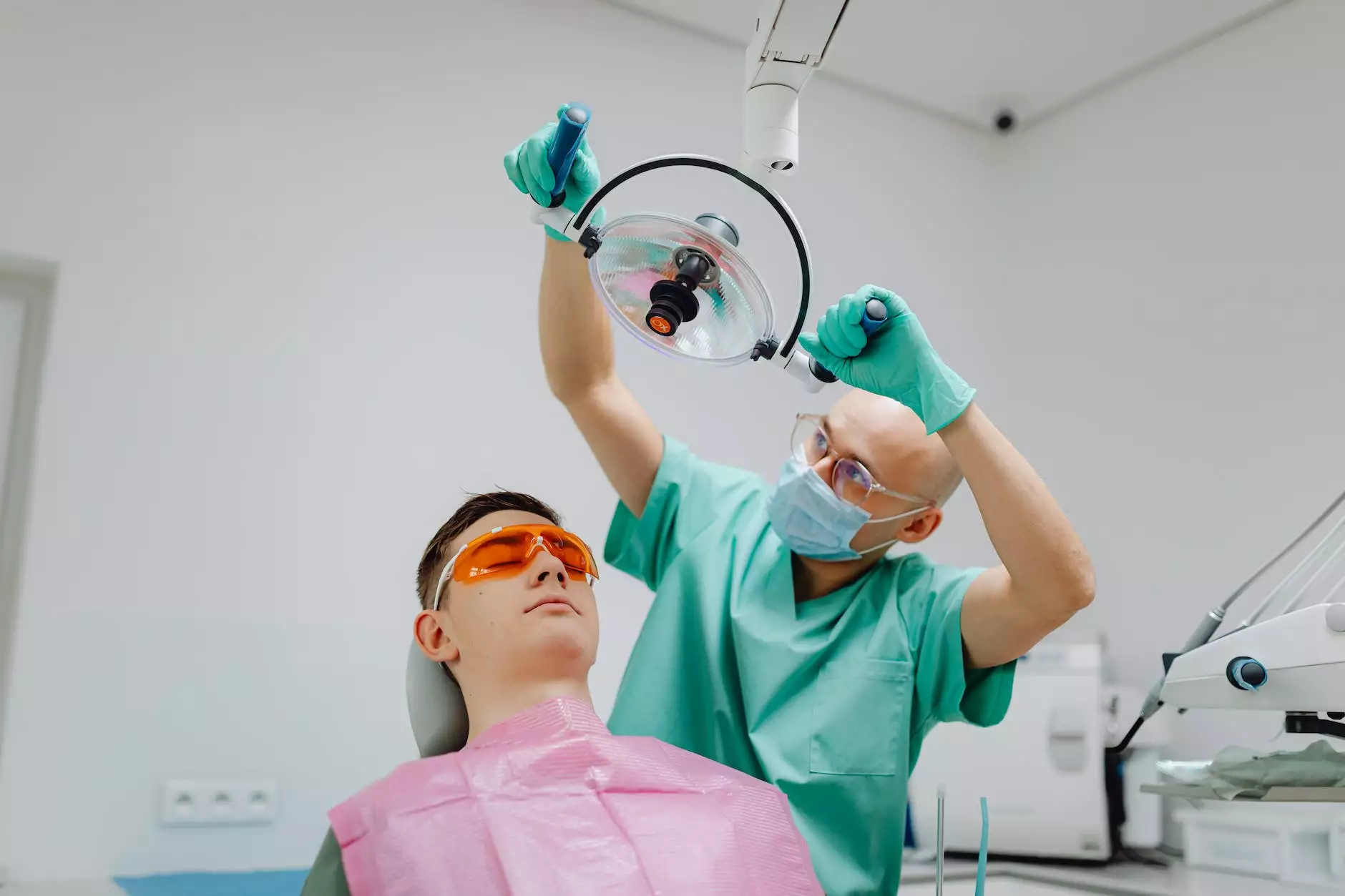Comprehensive Guide to Lung Cancer Screening and Its Importance in Preventive Health

In the rapidly evolving landscape of Health & Medical advancements, early detection of diseases remains the cornerstone of successful treatment and better patient outcomes. Among these, lung cancer stands as one of the most common and deadly forms of cancer globally. However, with significant progress in screening technologies, early detection of lung cancer has become increasingly feasible, allowing for timely intervention and improved prognosis.
Understanding Lung Cancer: A Silent Killer
Lung cancer is characterized by uncontrolled growth of abnormal cells within the lungs. It is often termed a silent killer because early-stage symptoms are usually vague or absent, leading to late diagnoses when the disease has already advanced. The high mortality rate associated with lung cancer underscores the urgency of implementing efficient screening strategies, especially for high-risk populations.
The Significance of Lung Cancer Screening in Modern Medicine
Preventive health campaigns emphasize the importance of lung cancer screening as a means to catch the disease early, when it is most treatable. Screening involves the use of advanced imaging tools, most notably low-dose computed tomography (LDCT), to identify malignant nodules before symptoms arise. This proactive approach significantly reduces mortality and improves the quality of life for patients.
What Is Lung Cancer Screening and Who Needs It?
Lung cancer screening involves non-invasive imaging measures designed to detect lung tumors at an early stage. It is recommended primarily for individuals classified as high-risk, specifically:
- Persons aged 50-80 years
- With a significant history of smoking (at least 20 pack-years)
- Current smokers or those who quit within the past 15 years
- With a family history of lung cancer or exposure to occupational carcinogens
These criteria are established based on extensive research demonstrating the effectiveness of screening in reducing lung cancer mortality within these high-risk groups.
Technology Behind Lung Cancer Screening: The Role of Low-Dose CT
Modern lung cancer screening primarily utilizes Low-Dose Computed Tomography (LDCT). This imaging technique offers detailed cross-sectional images of the lungs with substantially less radiation exposure compared to traditional CT scans, making it suitable for routine screening.
Advantages of LDCT include:
- High sensitivity for detecting small nodules
- Ability to identify tumors at an early, more treatable stage
- Quick procedure with minimal discomfort
- Cost-effectiveness for large-scale screening programs
Through periodic LDCT scans, physicians can monitor lung health over time, tracking changes in nodules or identifying suspicious growths requiring immediate diagnostic intervention.
Benefits of Early Detection Through Lung Cancer Screening
Early detection via lung cancer screening offers several critical benefits:
- Increased Survival Rate: Detecting tumors at an early stage significantly enhances the chances of successful treatment and survival.
- Less Aggressive Treatment: Early-stage cancers often require less invasive therapies, such as localized surgery, leading to fewer side effects and complications.
- Improved Quality of Life: Patients diagnosed early tend to experience better post-treatment health and functionality, especially when combined with supportive therapies like physical therapy.
- Cost-Effective Healthcare: Preventing late-stage cancer complications reduces long-term healthcare costs and resource utilization.
Integrating Physical Therapy and Sports Medicine in Lung Cancer Care
While lung cancer screening is vital for early detection, comprehensive patient care extends beyond diagnosis. Incorporating physical therapy and sports medicine can play a pivotal role in the holistic management of patients, improving functional capacity and enhancing recovery outcomes.
Post-treatment physical therapy at clinics like hellophysio.sg focuses on:
- Restoring mobility and strength after surgical resection or radiation therapy
- Addressing breathing difficulties through respiratory therapy techniques
- Reducing fatigue and promoting cardiovascular health
- Preventing secondary complications such as musculoskeletal issues
Moreover, tailored sports medicine programs can support survivors in gradually resuming physical activity, which is crucial for overall well-being. These interventions aim to optimize respiratory capacity, increase energy levels, and foster mental resilience.
Risk Reduction Strategies and Lifestyle Modifications
While screening is essential, prevention remains the best strategy. Adopting healthier lifestyles can drastically reduce the risk of developing lung cancer, including:
- Smoking Cessation: The most impactful step; quitting smoking reduces the risk substantially over time.
- Minimizing Exposure: Avoiding occupational and environmental carcinogens such as asbestos, radon, and industrial pollutants.
- Healthy Diet: Consuming antioxidant-rich foods supports overall lung health.
- Regular Physical Activity: Promoting respiratory efficiency and immune function.
- Routine Health Check-Ups: Mandatory screening meetings for high-risk groups, ensuring early intervention if needed.
The Role of Healthcare Providers in Promoting Lung Cancer Screening
Healthcare professionals play a crucial role in educating patients about the benefits of lung cancer screening. They should:
- Identify high-risk individuals based on age, smoking history, and exposure
- Advise and guide patients through the screening process
- Interpret screening results accurately and recommend follow-up actions
- Coordinate multidisciplinary care involving oncologists, thoracic surgeons, radiologists, and physical therapists
Why Choose hellophysio.sg for Your Comprehensive Health and Recovery Needs
At hellophysio.sg, we pride ourselves on combining cutting-edge medical diagnostics with personalized physical therapy and sports medicine programs to support your wellness journey. Our experienced team of physiotherapists and medical practitioners are dedicated to providing:
- Advanced Screening Services: We facilitate access to LDCT and other important diagnostic tools for lung health monitoring.
- Rehabilitation Programs: Customized recovery plans focusing on breathing exercises, strength building, and mobility restoration post-treatment.
- Preventive Healthcare: Lifestyle counseling centered around reducing risk factors and promoting overall well-being.
- Patient Education: Empowering you with knowledge about early detection, treatment options, and lifestyle modifications.
Choosing a comprehensive healthcare provider like hellophysio.sg ensures that every aspect of your health is attended to, from early screening to post-treatment recovery.
Conclusion: The Critical Importance of Lung Cancer Screening in Saving Lives
Lung cancer remains a formidable challenge in global health, but advances in screening technology and increased awareness have ushered in a new era of early detection and improved survival. Implementing routine lung cancer screening for high-risk populations is a proven strategy that saves lives, reduces treatment burdens, and enhances overall health quality.
Complementing screening with comprehensive rehabilitation services such as physical therapy and sports medicine ensures that patients not only survive but thrive post-diagnosis. By prioritizing preventive healthcare, adopting healthier lifestyles, and leveraging expert services like those available at hellophysio.sg, individuals can take control of their lung health, leading to a healthier, more resilient future.
Take Action Today
If you meet the criteria for lung cancer screening or want to learn more about how proactive health measures can benefit you, contact our team at hellophysio.sg. Early detection saves lives—make your appointment today and prioritize your health and well-being!









